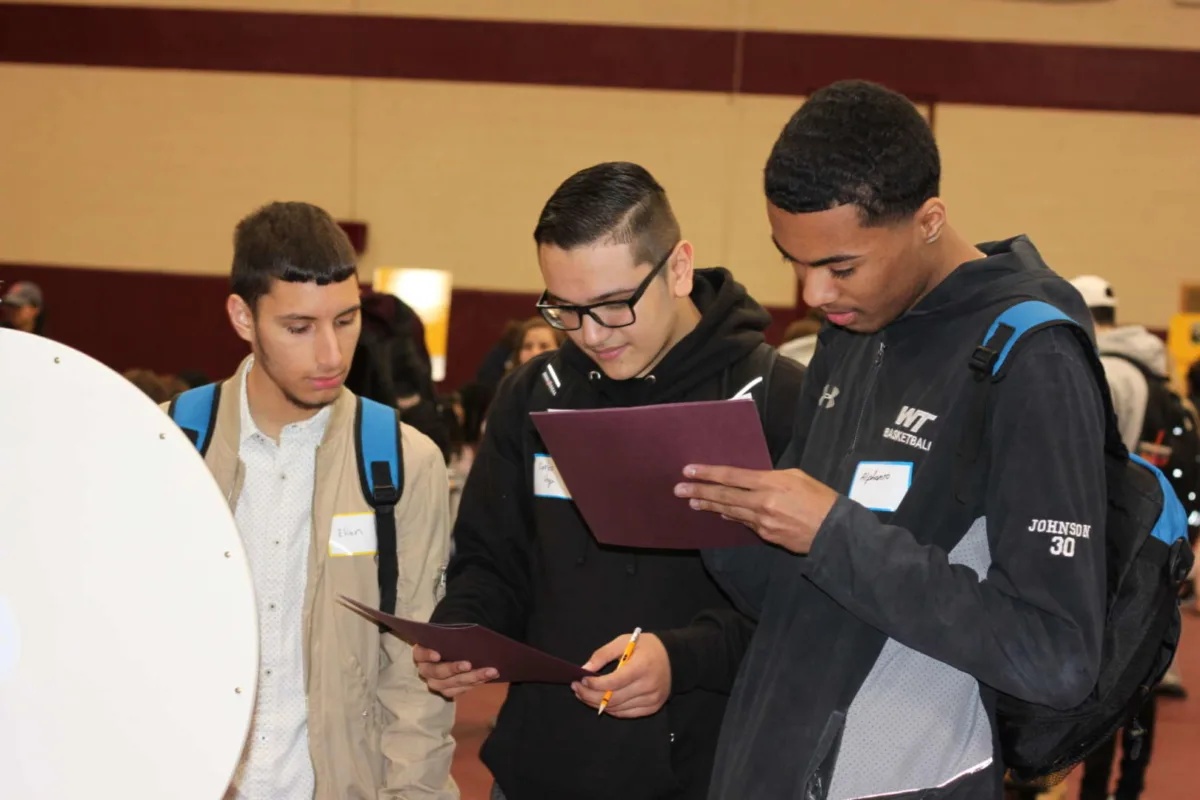Whittier Students Learn Budgeting Skills During Credit for Life Fair

HAVERHILL — Whittier seniors got a peek into the financial realities of life after graduation as they made their way around a Credit for Life fair this morning.
The event was designed to give students an idea of the financial responsibilities — obtaining a job, finding a place to live, buying groceries, saving for retirement and handling unexpected expenses — they will face when they leave Whittier.
Whittier first piloted the fair last year to service cluster seniors, and based on that success, expanded the event to the entire senior class. Each student received a monthly allotment of approximately $3,400 and were randomly given a credit score, which dictated what they could and could not afford.
“Seventy percent of adults are financially illiterate and we save negative one percent of our income,” said Business and Marketing teacher Linda Sarno, who organized the event with Hospitality teacher Cathie Baines. “I hope that after this event students realize how important it is to do a monthly budget and to be putting money into a savings account. The more they learn, the more they can earn.”
At one station, students spun the “reality check” wheel, which featured unexpected circumstances in life that needed to be factored into how they budgeted for expenses. Students had to account for things like a stolen credit card fee, a car repair and a medical bill. School Resource Officer Jamie Landry also made his way around the fair, handing out speeding tickets to further complicate students’ budgets.
Once they visited all the booths, students met with credit counselors — volunteers from TD Bank, Enterprise Bank, Webster Bank and Haverhill Bank — who helped them calculate their monthly spending to see if they were under, at or over their budget. If over, students had to figure out which areas of their life they’d have to scale back.
Senior carpentry student Kaitlyn Macduff, of Haverhill, received a credit score of 600, but was still able to plan appropriately and afford what she needed, having learned a lot about budgeting in her financial literacy course. She ended up with just over $130 left at the end of month, which she planned to put into savings (something she practices in her real life as well). She left feeling more prepared about what she’ll be responsible for once she finishes school.
“Right now I don’t pay for my house, I don’t pay for my phone bill or groceries,” Macduff said. “A lot of that is a reality check. It’s helpful because when I get to college or after I graduate, I’m going to have to start paying for this stuff.”
CAD Drafting senior Parker Breen, of Ipswich, received a good credit score — 720 — and chose to budget modestly throughout all aspects of his life (besides insurance, where he splurged), realizing if he chose more expensive options, he might end up in debt. Instead, he came out with $300 he could put into his savings account.
“If it weren’t for this, I wouldn’t have known the big picture,” Breen said. “It’s very beneficial. Money doesn’t grow on trees. You need to earn money and depending on how much money you have and your credit score, you have a bright future ahead of you.”
The event was made possible by grants from the Commonwealth of Massachusetts and Kiwanis. To conclude the event, students took a survey from the Commonwealth, to provide feedback on their experience.
Superintendent Maureen Lynch would like to thank Sarno and Baines for once again organizing the event and all the volunteers who contributed to the success of the activity.
###